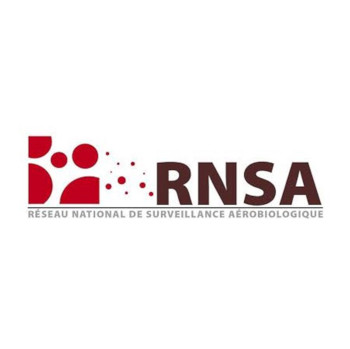RNSA
The Réseau National de Surveillance Aérobiologique (RNSA.) is an association under the law of 1901, created in 1996 to continue the work carried out since 1985 by the Laboratoire d'Aérobiologie of the Institut Pasteur in Paris.
The RNSA's main objective is to study the content of biological particles in the air, which can have an impact on the allergic risk for the population. In other words, the study of pollen and mold content in the air, as well as the collection of associated clinical data.
RNSA (Réseau National de Surveillance Aérobiologique) offers you the possibility of receiving weekly allergy risk forecasts by e-mail for the departments of your choice. Pollen alerts will only be sent to you if there is an allergic risk during the pollen season.
The RNSA's operating principle is based first and foremost on the constitution of capture sites, which are background collection sites. Each site has been chosen according to climatic, botanical and population density criteria. Each site is made up of a sensor, a sensor manager, an analyst and a doctor with clinical responsibility for the site.
The coordination center, managed by Charlotte SINDT, is based in Brussieu, in dedicated premises in the heart of the Monts du Lyonnais, 40 km west of Lyon (69). The center receives pollen analysis results and associated clinical information. As a result, it is able to produce allergo-pollen bulletins containing pollen, clinical and allergy risk information.
These national or regional bulletins are retransmitted to sites, the media, the French Ministry of Health and all RNSA partners.
The coordination center ensures the secure management of the database, which enables statistical research on pollens and molds, the preparation of annual reports, the implementation of forecasts...
Pollen and mold counts are carried out using HIRST-type volumetric sensors.
Sorry, no items found. Please adjust your search criteria and try again.
Sorry, unable to load the Maps API.

